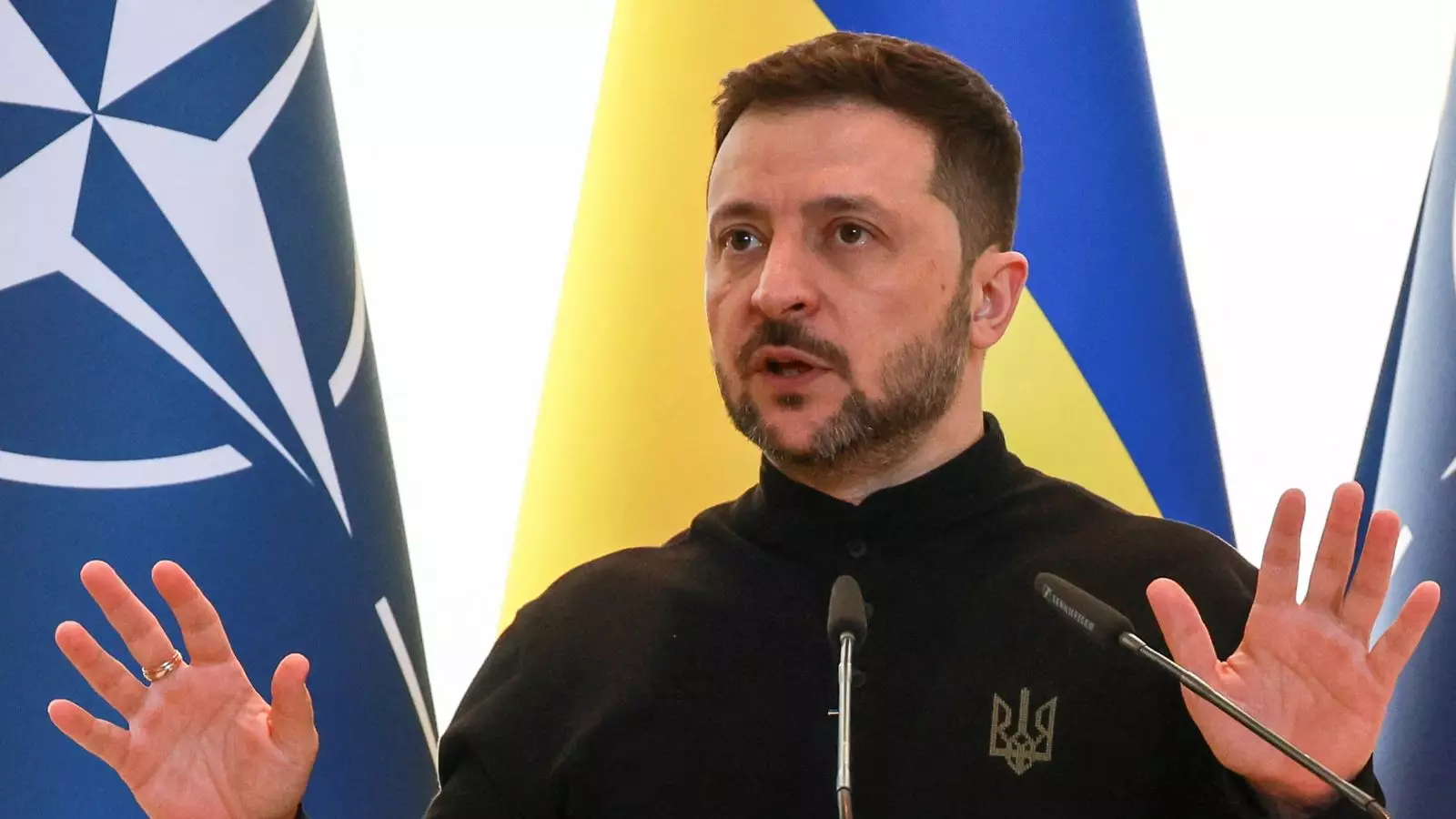The recent dialogue between Sir Keir Starmer and Ukrainian President Volodymyr Zelenskyy has once again put the spotlight on the ongoing conflict in Ukraine, specifically the war that many have characterized as Russia’s brutal aggression. Despite the optimistic tones characterizing their exchange, one cannot help but feel that such discussions prompt more skepticism than hope. Starmer reaffirmed the UK’s “iron-clad support” for Ukraine, echoing a sentiment that has grown wearisome for war-weary citizens who crave real progress rather than recycled rhetoric.
The crux of the issue lies in the unsettling contradiction between the assurances of support from Western leaders and the grim realities on the ground. Each call for a ceasefire or a “just and lasting peace” seems to ring hollow, especially when juxtaposed with Russia’s history of violating agreements. In the aftermath of the so-called Easter truce, which both involved parties accused each other of breaching, one must question whether these phone calls are merely political theater designed to placate international audiences.
Putin’s Proposals: A Dead-End Diplomacy
Vladimir Putin’s open suggestion for bilateral talks is reminiscent of past attempts at peace that faltered amid his regime’s aggressive posturing. His statement about a “positive attitude towards a truce” could easily be dismissed as another tactic aimed at deflecting criticism rather than an earnest initiative for peace. While Putin’s words may carry a veneer of diplomacy, they inspire little confidence given the surrounding context. The reality remains that Russia’s military operations continue unabated, undermining any legitimacy to their calls for negotiation.
Moreover, the Easter truce itself serves as a point of contention, with Zelenskyy declaring that the Russian military violated the ceasefire pact over 2,000 times. This raises significant doubts about the Kremlin’s willingness to adhere to any agreements made, creating a situation where Ukrainian officials might engage in conversations that lead nowhere. Rather than fostering dialogue, these discussions seem to prolong the suffering experienced by ordinary citizens caught in the crossfire.
International Politics: A Playground for Abstractions
The broader international implications of the conflict cannot be overlooked. Trump’s latest remarks, indicating that both Russia and Ukraine should reach a deal, mask the complexities and tragedies of a war that has resulted in tremendous loss of life and devastation. The simplified framing of such a negotiation, as if it were a business transaction, trivializes the human cost involved. When political figures talk about “making a deal,” it’s essential to remember that these aren’t just abstract numbers on a ledger; they represent the living and breathing individuals who face the consequences of decisions made far above their heads.
Although the promise of a truce may paint a hopeful picture, what’s evident is that negotiations often become mere pawns in the chess game of global politics. The insistence on a ceasefire might serve to illustrate the moral high ground taken by Western leaders, but it does little to create real solutions on the ground. The question remains: how many more meaningless declarations will it take before genuine action is taken to bring about an end to this senseless violence?
Seeking True Accountability
As we hear about further meetings and discussions aimed at crafting a ceasefire and paths toward peace, the spotlight must remain on accountability. Both Ukraine and Russia need not only to engage in constructive dialogue but also to accept the realities of their actions in this conflict. The notion that one party holds the moral imperative over the other is a dangerous oversimplification; blame is shared in this devastating geopolitical mess.
If we truly desire peace, we must advocate for sincere efforts backed by concrete actions, not just polished statements crafted for political optics. The time has come to turn rhetoric into real accountability and recognize that words alone will not end this brutal war. Support for Ukraine, as noble as it sounds, must transition from mere proclamations into legitimate acts that effect change on the battlefield—otherwise, we risk allowing these discussions to spiral into mere footnotes of history, echoing the empty language that permeates modern diplomacy.

